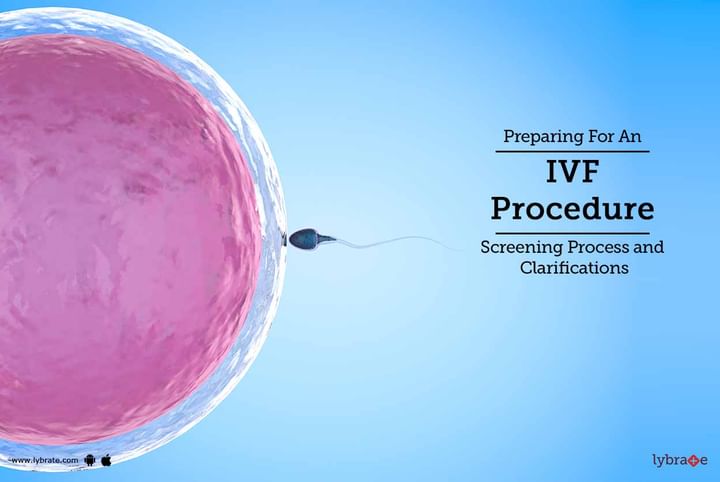Preparing For An IVF Procedure - Screening Process and Clarifications
IVF or In-vitro fertilization is an assisted reproductive technology, whereby the eggs of a woman who is unable to conceive naturally is collected and mixed with sperms for fertilization to take place. The resulting healthy embryo is then transferred into the female uterus to facilitate the implantation process followed by the pregnancy.
Before undergoing an IVF procedure, both the partners have to undergo few vital screenings and health check-ups, which would assist the doctor in having a better understanding of the fertility problem.
The Screening process before an IVF
The success of an IVF depends on many factors including the quality and quantity of the egg and sperm, or any defects in the female reproductive organs.
- For males, doctors perform a semen analysis to evaluate and examine the sperm (quality, quantity, morphology, mortality).
- In case the analysis shows any abnormality (such as low sperm count, sperm unable to penetrate the egg or an unsuccessful fertilization in the previous IVF attempts) doctors opt for Intracytoplasmic Sperm Injection or ICSI. ICSI is an advanced procedure whereby a specialist (embryologist) collects a single active sperm and injects it directly into the egg to bring about the fertilization of the egg.
In extreme cases of no sperms, a doctor may opt for Testicular Sperm Extraction (TESE) or Percutaneous Epididymal Sperm Aspiration (PESA) to retrieve the sperm.
- In females, the fertility problems can be brought about by a myriad of triggers, especially hormonal imbalance, the medical conditions that affect the hormonal balance and the reproductive organs (such as PCOS, endometriosis, cancer of the reproductive organs, obesity). Thus, for a female, a blood test to analyze the levels of the reproductive hormones- prolactin (PRL), luteinizing hormone (LH), thyroid stimulating hormone (TSH), and follicle-stimulating hormone (FSH) are crucial.
- Imbalance in the Prolactin, TSH or an elevated FSH: LH level (indicative of PCOS or an unhealthy ovarian reserve) once treated, enhances the effectiveness of IVF by several folds.
- To understand the condition of the fallopian tubes and the uterine cavity, a hysterosalpingogram (HSG) is performed on the 8th day of the cycle.
- The doctor may even perform an ultrasound scan of the vagina to examine the uterus (morphology), AFC (antral follicle count), the thickness of the endometrium and ovarian volume. In most cases, a woman is also tested for HIV, TB, VDRL, Hepatitis-B.
Some vital questions that every individual should ask before an IVF
Every individual or couple undergoing an IVF should be aware of the procedure:
- If the physician is specialized and qualified enough to perform the IVF.
- How expensive is the procedure and if they are a suitable candidate for IVF?
- Are there any life-threatening side-effects or complications associated with IVF?
- What are the chances of the IVF being a success?



+1.svg)
